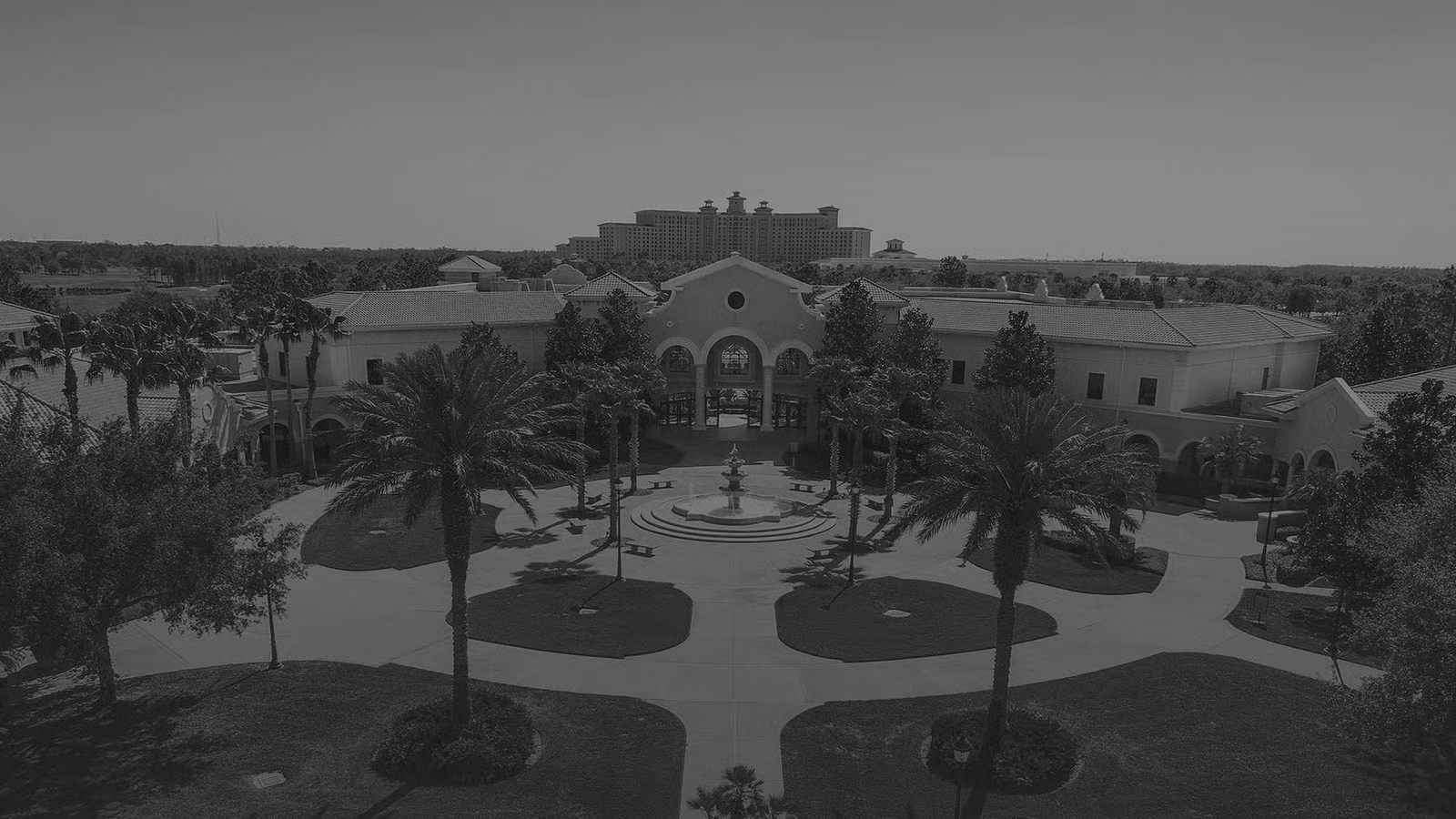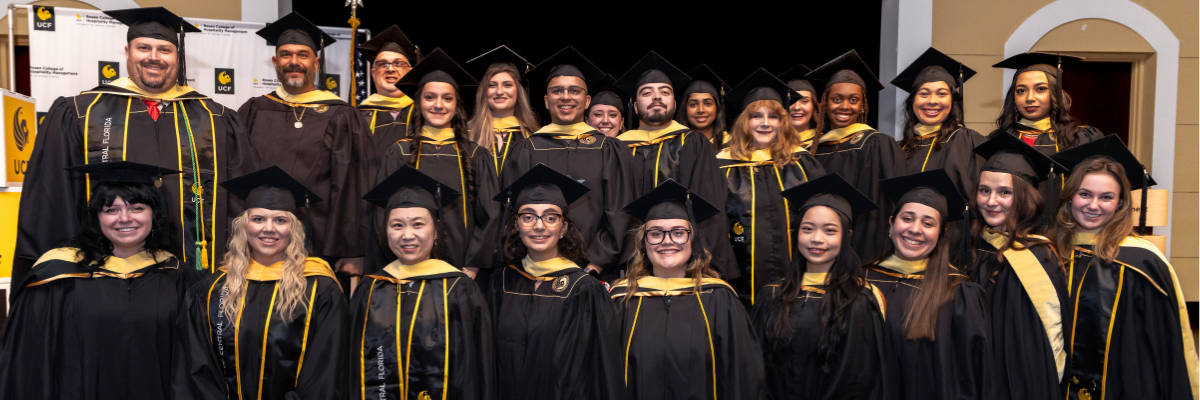
Discover Your Path to Excellence
With over 74 million visitors coming to Orlando each year, UCF’s Rosen College of Hospitality Management offers an ideal environment to immerse yourself in the ever-evolving world of hospitality. Our graduate programs prepare future leaders to excel in a dynamic industry that continues to innovate and grow. Whether you’re interested in event management, tourism, or themed experiences, the opportunities are endless. As hospitality transforms, our curriculum evolves too—integrating cutting-edge technology, guest service strategies, and industry trends to ensure you’re always ahead of the curve.
68
world-renowned faculty members from 18 countries
99%
students secure full-time jobs upon graduation
9%
projected job growth for hospitality workers nationwide
Top 5
best colleges for hospitality and tourism in the world
$20 BILLION
global hospitality industry with exceptional growth potential
1.9M NEW JOBS
in leisure and hospitality will be created in the U.S. by 2031
MASTER’S DEGREE PROGRAMS
Unleash your potential and accelerate your career with our Master’s Degree Programs, offering specialized education and immersive experiences in diverse fields. Our programs foster leadership, innovation, and strategic thinking, ensuring that graduates are well-prepared to navigate and excel in the ever-evolving hospitality industry.
GRADUATE CERTIFICATE PROGRAMS
Are you ready to take your career to the next level? Our credit-earning certificates provide a flexible pathway for individuals with a BS/BA degree to enhance their skills and expand their professional opportunities. Whether you pursue a certificate as a non-degree seeking student or as part of a graduate program, these offerings are designed to accelerate your career and ignite your passion for growth.
In-person and Mixed
DOCTORAL DEGREE PROGRAMS
Achieve the pinnacle of expertise and leadership with our transformative Doctoral Degree Program. At UCF Rosen College, you will conduct groundbreaking research and gain advanced insights in hospitality management. Our program is designed to foster critical thinking, innovation, and strategic leadership, preparing you to shape the future of the industry. Through mentorship, rigorous academic study, and real-world application, you’ll be empowered to become a thought leader, influencing key developments and trends in hospitality on a global scale.

Rosen has profoundly changed the way that I look at the world. The perspective shift has made me a better supervisor, service provider and innovator!”

Admission & Open House Events
Check back later for more events!
